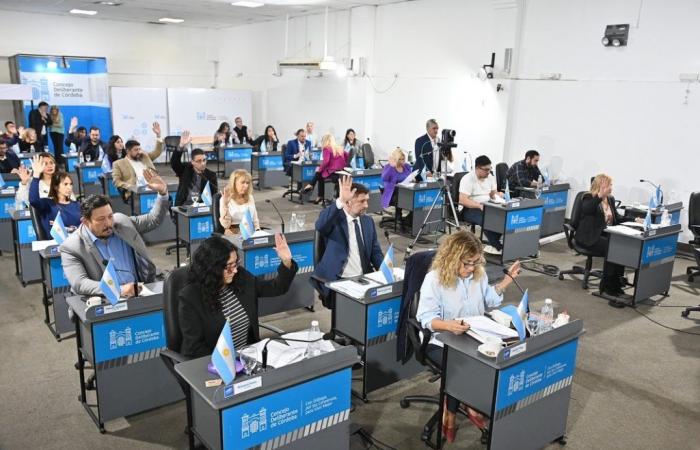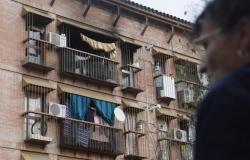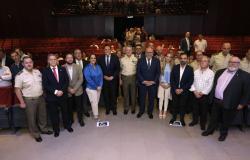
In this Thursday’s session, Peronism and radicalism, ignoring the claims of residents of the area, gave way to a new zoning in Villa Belgrano and part of Arguello, including the Suquía River waterfront that seriously affects the main green lung of the capital.
The ordinance presented by councilors of the ruling party and which was reformed by the Executive Department seeks to “order the growth of the city” through the application of the concept of densification. What is sought is to extend the model of several homes being located on the same lot beyond the Ring Road.
Although some modifications were included, such as maintaining a percentage of “green areas” in each lot to allow permeability or the construction of garages so that the streets are not saturated with cars, no progress was made on the main question raised by residents of the area. and other parts of the city, which is the authorization for the construction of apartment buildings in front of the coast of the Suquía River, which on its opposite bank is where the San Martín reserve begins.
As biologist Adriana Moyano from “Amigos de la Reserva San Martín” explained to the La Tinta site, “If the entire river coast is waterproofed with apartment buildings, the land no longer has the possibility of absorbing water and severe rains will flood the neighborhoods that are on its coasts. Furthermore, the river is very important for the Reserve because it is its biological corridor, it is where the fauna and flora have access to other green spaces and the possibility of contacting and genetically exchanging with other species. “If one cuts off that possibility and isolates the reserve from the river, it destroys that biological corridor, leaving the reserve and the species that inhabit it without a future.”
At the time of the vote, dozens of neighbors demonstrated in front of the Deliberative Council, demanding to be heard by the authorities and explain their position in order to improve the rule. The explanation of the ruling party was that the neighbors had already been heard, without being able to give details of the date and place in which this happened. The fact is that the office was signed in the commission of the Deliberative Council minutes after the presentation made by the authorities of the Executive Department, without giving rise to its study by either the councilors or neighbors or specialists involved in the subject.
One of the five votes in the negative was from the councilor of the Left Front Laura Vilches, who, while insisting on the project to expand the San Martín Reserve (for which she requested the rehabilitation of the project presented in 2021) denounced that The ordinance “seems tailor-made for urban developers who are interested in the economic value of the area due to the characteristics that precisely mean the environmental plus due to the proximity to the San Martín Reserve, the native forest and the landscaping of those neighborhoods that under the logic of capital becomes a commodity” Vilches also denounced that “far from being interested in the protection of the relicts of native forest and species, as well as the waterproofing of the soil, what we see is that this ordinance responds to the interests of real estate development making use of the advantage that the northern area of the city has, which is no small thing, understanding that any area located upstream has better conditions than the lands downstream, where the poorest and most populous areas of the city are located.”
Councilor Vilches also denounced that the ruling party did not allow the neighbors to be heard but limited itself to incorporating “what they believe to be the neighbors’ opinions” to request the return of the project to commission so that all sectors involved can be heard. , which was rejected.
#Colombia





